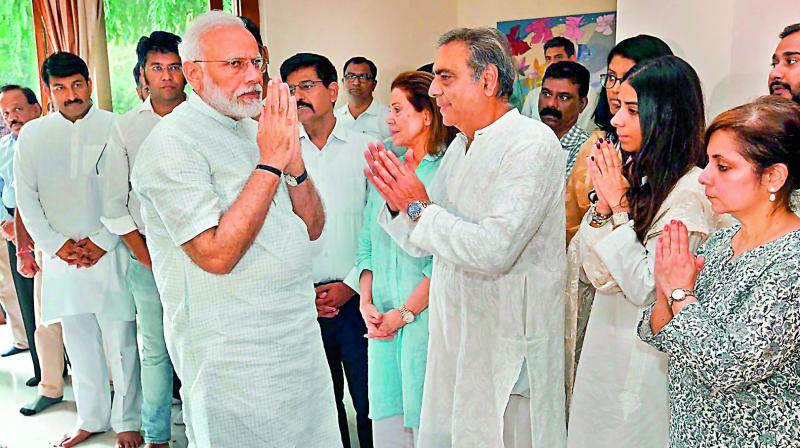Ram Jethmalani defied popular opinion, took tough cases

New Delhi: Ram Jethmalani — one of the foremost and most controversial criminal law doyens of the legal fraternity — passed away at the age of 95 at his official residence in New Delhi.
Though he had stopped appearing in court regularly, the eminent jurist remained active as a lawmaker, attending Rajya Sabha without fail and keeping himself fit by playing badminton at home every day.
Born in Shikarpur, Sindh, in Pakistan on September 14 1923, Jethmalani kicked off an illustrious career spanning almost seven decades by obtaining a law degree at 17 years.
Having appeared before the court in Pakistan’s Karachi, he was enrolled as an advocate in Mumbai after moving to India as a refugee in 1948 following the partition.
He would rise to fame 11 years later as one of the prosecutors in K.M. Nanavati vs State of Maharashtra in which a Naval commander was tried for the murder of his wife’s lover. This was among the last cases to be heard as a jury trial in India.
Jethmalani would go on to appear for the accused in high-profile cases, including the assassination cases of Prime Minister Indira Gandhi and former PM Rajiv Gandhi, the Asaram Bapu sexual assault case, Jessica Lal murder case, Arvind Kejriwal v Arun Jaitley defamation case, the Sohrabuddin Shah encounter case and Jayalalithaa’s disproportionate assets case.
His last fight in the top court that had some bearing on the public at large was to bring back unaccounted money that is deposited in overseas banks. The legal battle led to the setting up of a Special Investigation Tea-m (SIT) to probe black money stashed in foreign tax havens.
A political maverick and towering figure in right-wing politics, Jethmalani was first elected to Lok Sabha in 1977 and 1980 from Mumbai on a BJP ticket. He was law minister in Prime Minister Atal Bihari Vajpayee’s government, a position he had to relinquish after he ran into trouble with the law secretary.
No stranger to controversy, given his clientele, Jethmalani was often pitched into situations where the sympathies of the public at large were not on his side.
One such case was when he appeared for Satwant Singh — one of Mrs Gandhi’s assassins — before the High Court. This made the BJP uncomfortable but the lawman chose to step down from his position in the saffron party instead of giving up the case.
Former Delhi High Court judge Rupinder Singh Sodhi recalled that Jethmalani was the only person willing to take up the case. “He wanted a short and to-the-point briefing from the instructing counsel. He knew the pulse of the court and was a master craftsman of court craft. Though being firm on the point he used to argue, he was gentle,” says Justice R.S. Singh.
His colleague, senior advocate Abhishek Manu Singhvi said Jethmalani was feisty, ebullient, fearless, outspoken to a fault and uncaring of consequences or of societal norms. “He had a large heart and a restive temperament. Always a crusader, both his mind and body remained good almost to the end,” Mr Singhvi added.
The long legal journey that Jethmalani covered can be gauged from the fact that former Chief Justice of India Justice H.L. Dattu, as a practising lawyer, was an instructing counsel to Jethmalani.
Jethmalani was a doting father. In the course of the hearing of the Amit Shah case he broke down saying that he should have been with his daughter Rani, who was battling for life in a Mumbai hospital. The court adjourned, telling Jethmalani to go to Mumbai and hearing would resume when the court hears from him.

